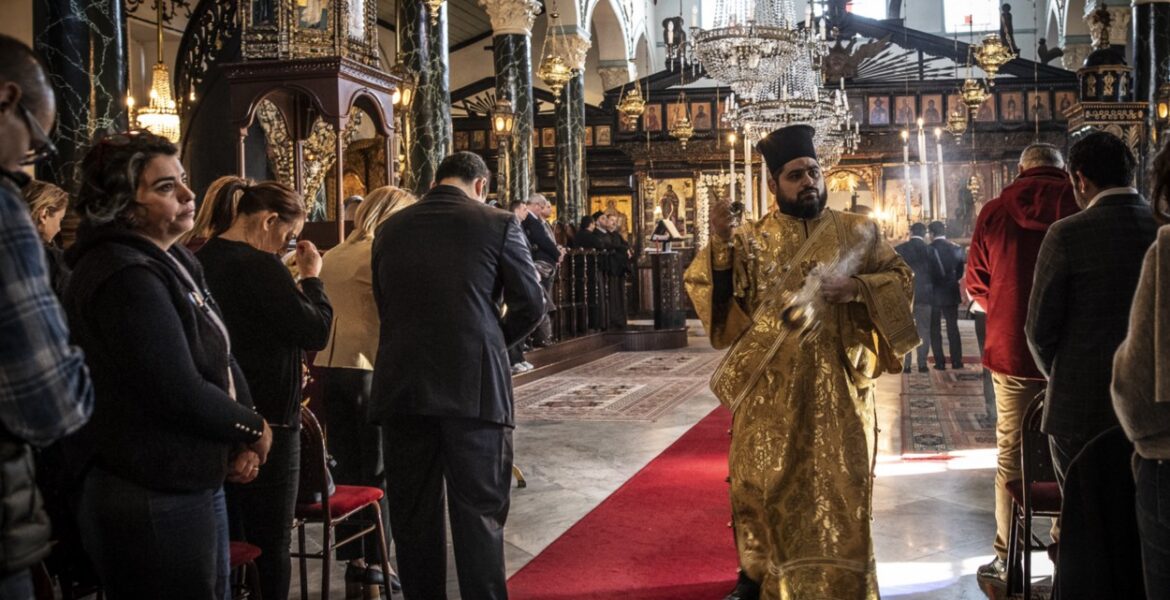El Periódico newspaper published an extensive report by its correspondent in Constantinople (Κωνσταντινούπολις, Turkish: İstanbul), Adriá Rocha Cutiller, with the title "the last Greeks of Istanbul".
It describes the last Greeks living there, as the last descendants of the Byzantine Empire. There are around 1,800 Greeks after a century of persecution and mass deportations.
The article refers to the personal testimonies of Nikos Vassiliadis of Apogevmatini, the last newspaper of the Greek community of Constantinople who returned after 30 years.
He was 18 when he had to leave but returned at 48.
"Nothing from the past was left. I was very angry, but now I have calmed down. I have forgiven them but I do not forget. It was in 1964 when the Turkish government expelled all Greeks from the country without discrimination," he said.
"There are only 1,800 Greeks left who are struggling not to disappear," Vassiliadis added.
The father and son do everything for the survival of the newspaper.
"All my life I had the feeling that I do not belong to the place where I was born. The way I was treated by the Turkish state was clear. Although I have a Turkish identity, I could never become a police officer, a military man, a firefighter, a civil servant," said Michalis Vassiliadis, the father.
"They were sending us a clear message. You are not one of us, the best thing to do is to leave," he continued.
On September 6, 1955, Turks entered their homes and broke everything.
In those days, about 30 Greeks were killed and many women were raped. 4,340 shops, 2,000 houses, 110 restaurants, 27 pharmacies, 12 hotels, 11 clinics, 5 sports clubs and two cemeteries were destroyed.

According to Professor Macar, the Constantinople pogrom was organized by the Turkish state but is not openly admitted. After his investigations, he concluded that the Turkish government wanted to do something, but lost control of the masses.
I think they had a plan in mind but not so big.
The survivors of the Constantinople pogrom are now trying to preserve what is left. Mr. Stavros, 70, oversees the cemetery in Şişli where his parents rest. According to Michalis Vassiliadis, for 15 years now there has not been a year when births have exceeded deaths.
Modern Constantinople cannot be imagined without a Greek presence there, as Ecumenical Patriarch Bartholomew states.
"We are here since the arrival of the Apostle Andrew and after the erection of Hagia Sophia by Justinian. We have witnessed historical events such as the Fourth Crusade, the Latin occupation of the city, the fall of the Byzantine Empire, and after the Ottoman Empire that succeeded it," he said.

"Also in the establishment of the Republic of Turkey. We have always been here, sometimes more, sometimes less, but always here. This is where our ancestors were born, lived and died. This city is like our home. We are citizens of this country, and we were born here and we want to die here," he continued.
For the Greeks of the city, history goes in circles. When Greek-Turkish relations are tense, they pay for it and 2020 is no exception.
"The transformation of Hagia Sophia into a mosque causes us sadness because a part of society, although small, did not pay attention to it," the Patriarchate said.
Hagia Sophia is a monument to all who live in its shadow, and represents a symbol of coexistence of religions and cultures of the inhabitants of this historic city, but now with its conversion our city has become poorer," said Bartholomew.
Adrià Rocha Cutiller is a Constantinople-based correspondent for El Periódico.
.

